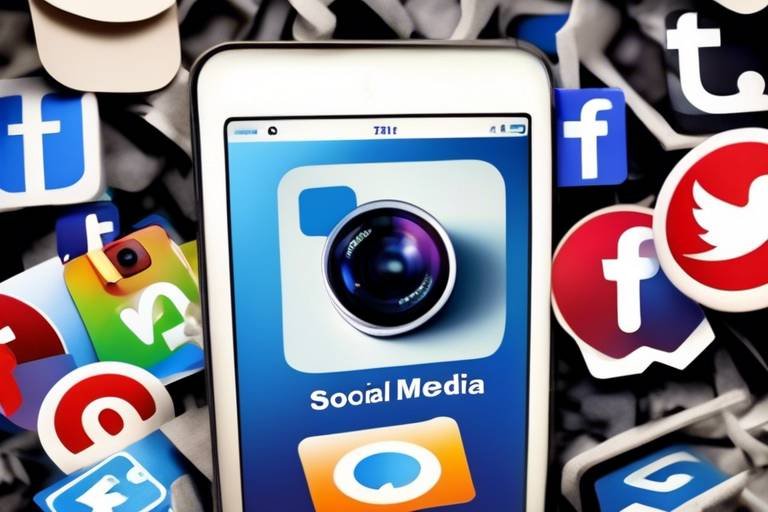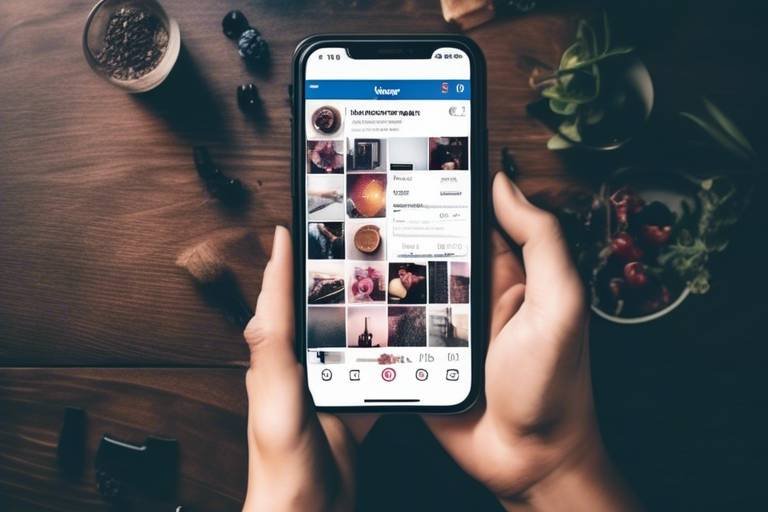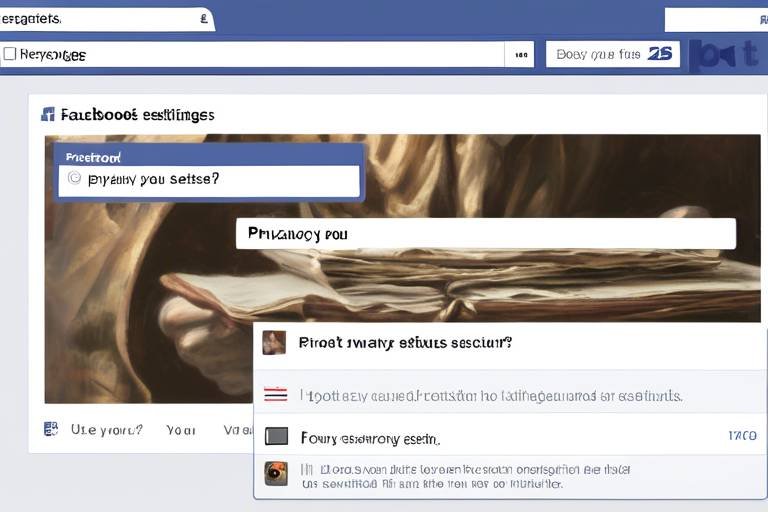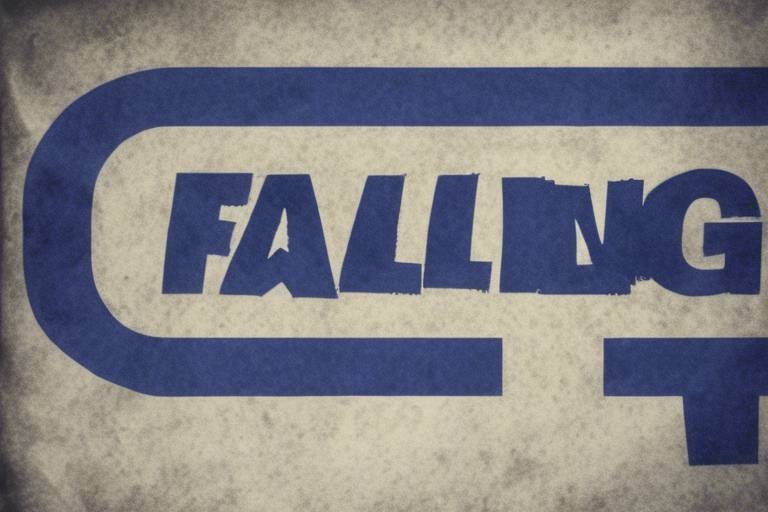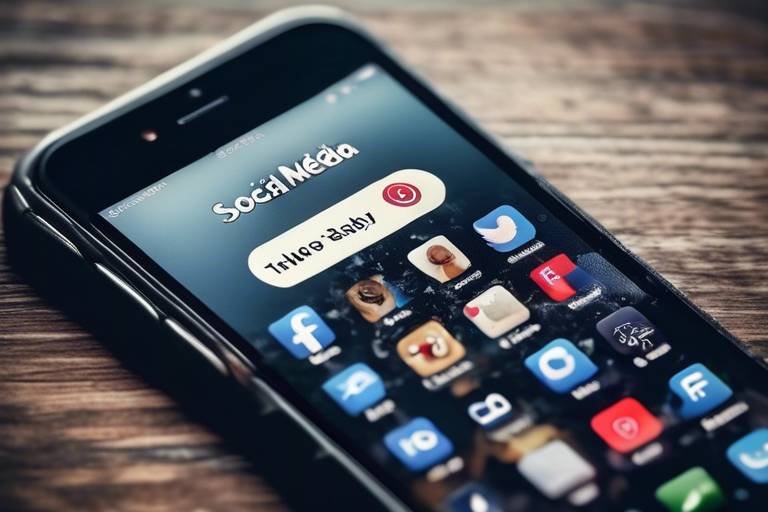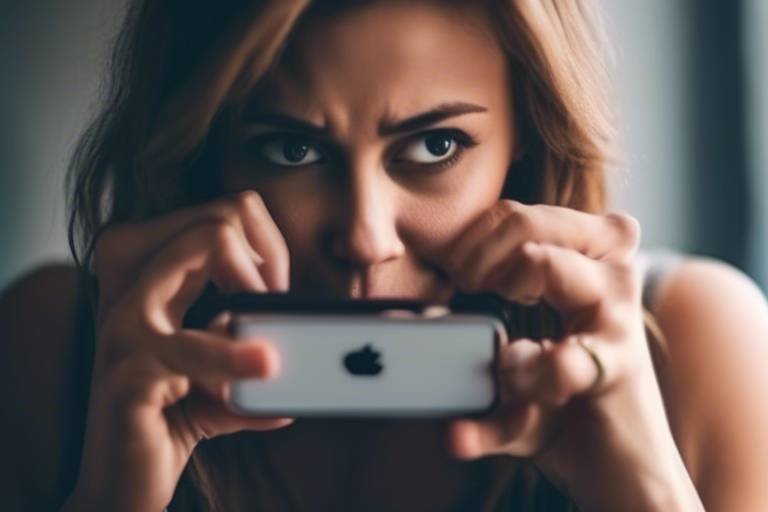The Danger of Revealing Too Much Personal Information on Social Media
In today's digital age, social media has become an integral part of our daily lives. From sharing our thoughts and experiences to connecting with friends and family, platforms like Facebook, Instagram, and Twitter offer a wealth of opportunities for self-expression. However, amidst the excitement of sharing our lives online, we often overlook the risks associated with revealing too much personal information. This article delves into the potential dangers, including privacy concerns, identity theft, and the impact on both personal and professional relationships.
Have you ever found yourself scrolling through your social media feed, marveling at how much people are willing to share? It’s a curious phenomenon—the privacy paradox. While many users express a desire for privacy, they paradoxically share intimate details of their lives online. This contradiction raises a critical question: why do we feel compelled to overshare? Perhaps it’s the thrill of connection or the need for validation. Yet, this desire can lead to significant consequences. The more we reveal, the more we risk our privacy. It’s essential to recognize this delicate balance and think twice before hitting that “post” button.
One of the most alarming risks of oversharing on social media is identity theft. When individuals disclose personal information—such as their full name, birth date, or even their address—they unwittingly open the door for fraudsters. Identity theft is a serious crime that affects millions each year, leading to financial loss and emotional distress. To safeguard against these threats, it’s crucial to be aware of how our online behavior can make us vulnerable. Here are a few steps to mitigate these risks:
- Limit personal information: Avoid sharing sensitive details that could be used to impersonate you.
- Use strong privacy settings: Familiarize yourself with the privacy options available on each platform.
- Be cautious with friend requests: Only accept requests from people you know and trust.
Some behaviors are particularly risky when it comes to oversharing on social media. Posting location updates, sharing personal milestones, and even discussing daily routines can expose users to danger. For instance, when someone checks in at a location or posts about their vacation plans, they may inadvertently alert criminals to their absence from home. Similarly, sharing significant life events, such as engagements or new jobs, can attract unwanted attention from those with malicious intent. It’s vital to recognize these common oversharing habits and their potential consequences.
Imagine this: you’re on a fantastic vacation, and you decide to share your excitement with your followers by posting real-time updates. While it may seem harmless, sharing your location can have dire consequences. Criminals often monitor social media to identify potential targets. By broadcasting your whereabouts, you may be inviting danger right to your doorstep. To protect yourself, consider waiting until you return home to share your experiences or disable location services on your posts.
Posting about major life events can also lead to privacy breaches and emotional distress. When you announce your engagement, for example, you may receive an overwhelming amount of attention—both positive and negative. This can create pressure to maintain a certain image, which can be exhausting. Moreover, sharing such milestones can attract unwanted attention from strangers or even acquaintances who may not have your best interests at heart. It’s essential to weigh the benefits of sharing against the potential risks to your privacy.
Did you know that what you share on social media can affect your professional life? Employers often review candidates' online presence before making hiring decisions. Oversharing personal information can lead to negative perceptions and impact job prospects. It’s not just about what you say but also how it reflects on your character. Maintaining a professional online image is crucial, especially in today’s competitive job market. Be mindful of the content you share and consider how it might be perceived by potential employers.
The pressure to curate a perfect online persona can take a toll on mental health. Many users feel compelled to maintain an idealized image, leading to anxiety and depression. This phenomenon is often referred to as the comparison culture, where individuals constantly compare their lives to the seemingly perfect lives of others. The more we overshare, the more we contribute to this cycle of comparison, which can lead to feelings of inadequacy and low self-esteem. It’s crucial to prioritize digital well-being and recognize that social media is often a highlight reel, not a complete picture of reality.
Scrolling through perfectly curated feeds can leave anyone feeling inadequate. The constant exposure to others’ successes can warp our perception of reality, making us question our own achievements. It’s essential to remember that everyone has struggles, even if they don’t showcase them online. Oversharing can amplify these feelings of inadequacy, creating a toxic environment for mental health. Taking breaks from social media and focusing on self-care can help mitigate these effects.
Establishing boundaries is crucial for protecting personal information on social media. Understanding privacy settings is equally important. Most platforms offer various options to control who sees your posts and personal information. Here are some practical tips for managing privacy:
- Review privacy settings regularly: Ensure that your settings align with your comfort level.
- Limit friend lists: Only connect with people you trust.
- Think before you post: Consider the long-term implications of sharing specific content.
- What are the main risks of oversharing on social media? Oversharing can lead to privacy breaches, identity theft, and negative impacts on personal and professional relationships.
- How can I protect my privacy on social media? Limit personal information, use strong privacy settings, and be cautious with friend requests.
- What are the mental health effects of social media oversharing? Oversharing can contribute to anxiety, depression, and feelings of inadequacy due to comparison culture.

The Privacy Paradox
In a world where privacy is becoming increasingly elusive, it's fascinating to observe the privacy paradox that many social media users face. On one hand, we have an innate desire to keep our personal lives private, to guard our secrets, and to protect our identities. Yet, on the other hand, we find ourselves eagerly sharing snippets of our lives online, often without a second thought. It’s as if we’re caught in a tug-of-war between the urge to connect and the need to conceal. Why do we do this?
Consider this: when was the last time you scrolled through your social media feed without encountering a friend’s vacation photos, a family member’s milestone, or even a stranger’s dinner plate? Social media platforms encourage us to share, to showcase our lives for all to see. This constant bombardment of information creates a culture where oversharing is normalized, almost celebrated. But what’s the cost?
Many users seem to forget that every post, tweet, or story can be a double-edged sword. While sharing personal information might seem harmless or even fun, it can lead to unintended consequences. For instance, a seemingly innocent post about your child’s birthday party could reveal personal details that could be exploited by those with malicious intent. The irony is that the more we share, the more we expose ourselves to risks that we might not even be aware of.
Moreover, the line between public and private has blurred significantly. With privacy settings often complicated and confusing, users frequently find themselves unsure of who can see their posts. A study conducted by the Pew Research Center found that 60% of social media users have experienced a privacy breach, whether through hacking, unwanted sharing, or other means. This statistic underscores the importance of understanding the implications of our online actions.
So, what drives this paradox? One major factor is the fear of missing out, or FOMO. In a society that thrives on connectivity, not sharing can feel isolating. Additionally, the validation we receive from likes and comments can be addictive, pushing us to share more personal information to garner attention. It’s a cycle that can be hard to break.
To navigate this paradox, users must become more mindful of their online presence. Here are a few questions to consider before posting:
- Is this information necessary for others to know?
- Could this post potentially harm my reputation or that of others?
- Am I comfortable with this information being public forever?
By reflecting on these questions, individuals can take control of their online narratives and protect their privacy while still enjoying the benefits of social media. Ultimately, it's about finding a balance that allows for connection without compromising safety.
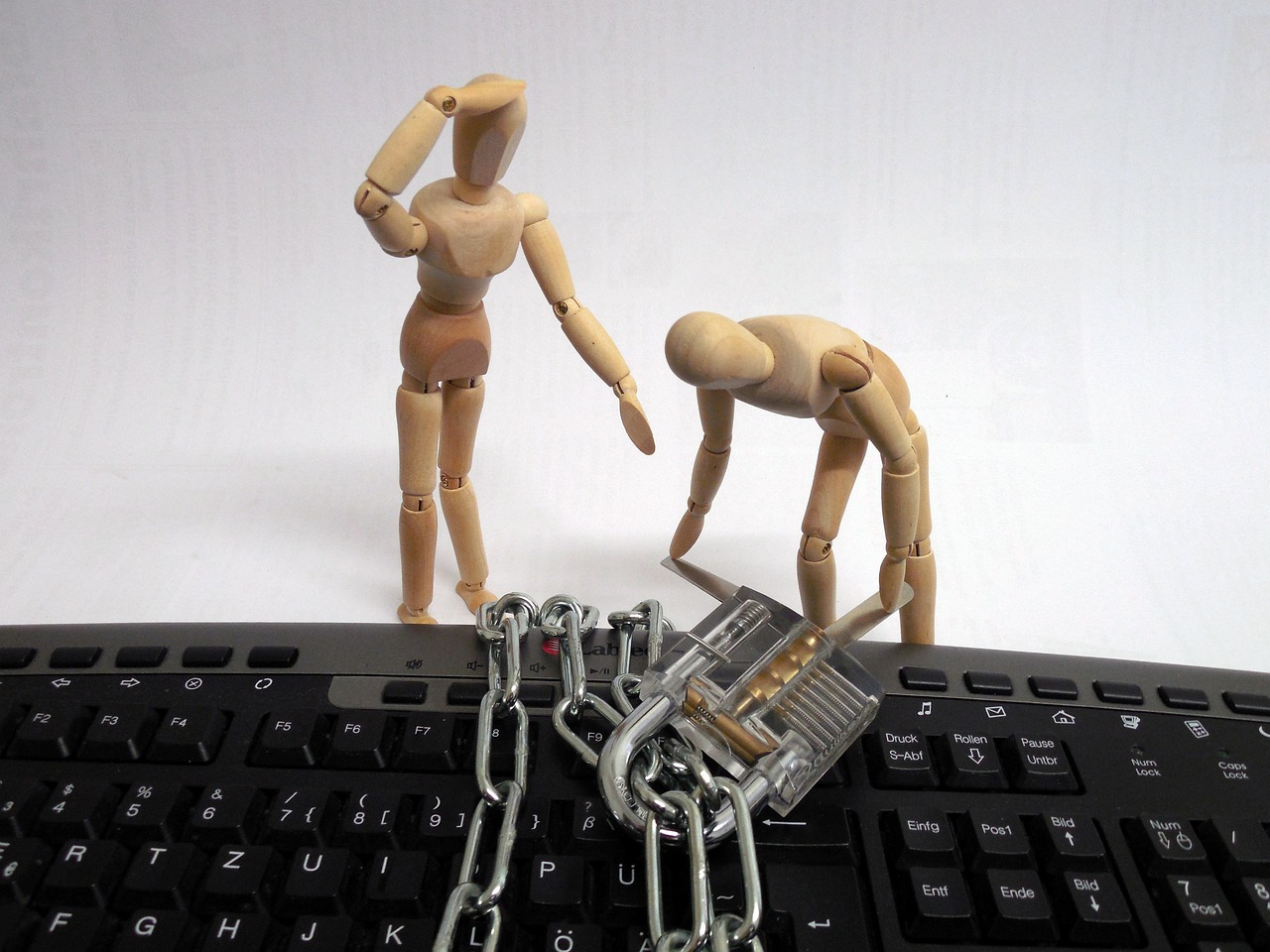
In today's digital age, sharing personal information on social media might seem harmless, but it can open the door to identity theft, a crime that affects millions of people each year. Imagine waking up one day to find that someone has stolen your identity, racked up debts in your name, or even committed crimes posing as you. Scary, right? The reality is that oversharing can make you an easy target for fraudsters who are always on the lookout for sensitive information.
When you post your full name, birth date, or even your pet's name, you might think it’s just a casual share among friends. However, these seemingly innocent details can be pieced together by malicious individuals to create a profile of you, which they can then use to impersonate you. Identity thieves often utilize social engineering tactics, where they exploit the information you provide online to gain access to your accounts or steal your identity entirely.
To put things into perspective, consider the following statistics:
| Year | Identity Theft Cases |
|---|---|
| 2020 | 1.4 million |
| 2021 | 1.5 million |
| 2022 | 1.6 million |
These numbers are not just figures; they represent real people whose lives have been turned upside down. So, what can you do to protect yourself? Here are some practical steps to mitigate the risks:
- Limit Personal Information: Avoid sharing sensitive details such as your address, phone number, or any financial information.
- Adjust Privacy Settings: Make sure your social media accounts are set to private, allowing only trusted friends to see your posts.
- Think Before You Post: Ask yourself if the information you’re about to share could be used against you. If in doubt, it’s best to keep it to yourself.
By being mindful of what you share, you can significantly reduce your risk of falling victim to identity theft. Remember, it only takes a few careless posts to compromise your security. So, the next time you’re about to share something personal, think twice. Is it worth the risk?
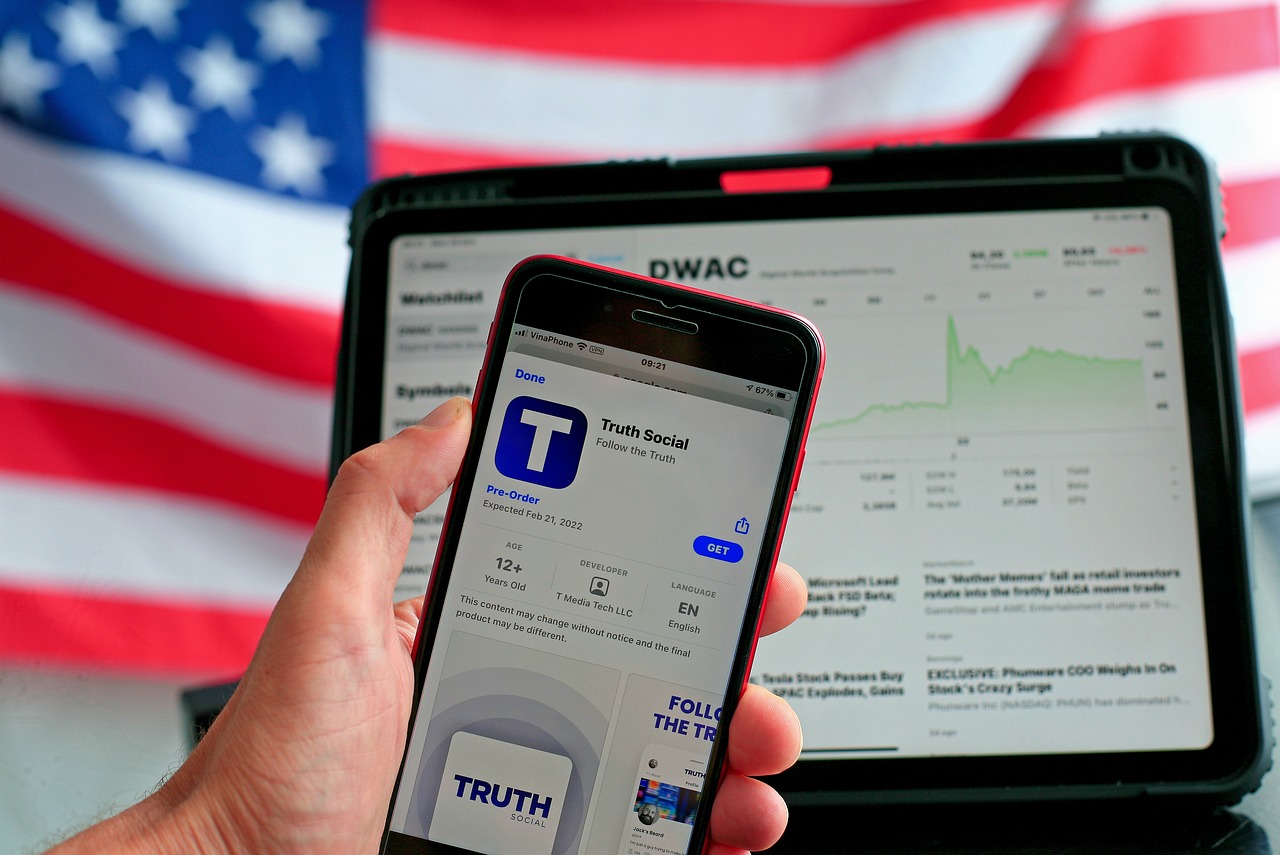
In the digital age, where social media platforms are a significant part of our daily lives, it's easy to get caught up in the excitement of sharing our experiences. However, this can lead to some common oversharing behaviors that may put our personal safety and privacy at risk. Think about it: how often do you see friends posting about their latest vacation, complete with location tags and photos? While sharing these moments can be fun, it also opens the door to potential dangers.
One of the most prevalent oversharing behaviors is posting real-time location updates. Whether it's checking into a restaurant or sharing a photo from a concert, this kind of information can alert others to your whereabouts. This is especially concerning when you consider that not everyone on your friend list has good intentions. By broadcasting your location, you may inadvertently invite unwanted attention or even become a target for theft.
Another common behavior is sharing personal milestones. Announcing engagements, pregnancies, or even job promotions can attract positive attention, but it can also lead to negative consequences. For instance, sharing your engagement might seem like a happy moment, but it can also lead to envy or unwanted scrutiny from others. Moreover, if someone knows you just landed a new job, they might see you as a target for their own agenda, whether it's to undermine your success or to exploit your newfound status.
It's not just about the big moments, either. Everyday oversharing, such as posting about your daily routines or personal struggles, can also have repercussions. For example, sharing your thoughts on a heated political topic or a personal health issue can spark debates that may escalate quickly. This can lead to strained relationships with friends and family who may not share your views. In a world where opinions can be polarized, sometimes it's better to keep certain thoughts private.
To help illustrate these behaviors, consider the following table that outlines some of the most common oversharing habits and their potential consequences:
| Oversharing Behavior | Potential Consequence |
|---|---|
| Posting Real-Time Locations | Increased risk of theft or stalking |
| Sharing Personal Milestones | Attracting unwanted attention or envy |
| Discussing Controversial Topics | Strained relationships and online disputes |
| Posting Personal Struggles | Receiving unsolicited advice or negative comments |
In conclusion, while sharing our lives on social media can foster connections and create a sense of community, it's essential to be mindful of what we share. Understanding these common oversharing behaviors can help protect not only our privacy but also our mental well-being. So, the next time you're tempted to share that perfect vacation snap or a heartfelt post about your challenges, take a moment to consider the potential impact of your words and images. Is it worth the risk?
- What is oversharing on social media? Oversharing refers to the act of sharing too much personal information on social media platforms, which can lead to privacy issues and security risks.
- How can I protect my privacy on social media? You can protect your privacy by adjusting your privacy settings, being selective about what you share, and avoiding posting sensitive information.
- What are the risks of sharing my location on social media? Sharing your location can make you vulnerable to stalking, theft, and other crimes, as it reveals your whereabouts to others.
- Can oversharing affect my job prospects? Yes, potential employers often review social media profiles, and inappropriate posts can negatively impact your professional image.
- How does oversharing impact mental health? Oversharing can lead to feelings of anxiety, depression, and inadequacy, especially in a culture that promotes comparison among users.
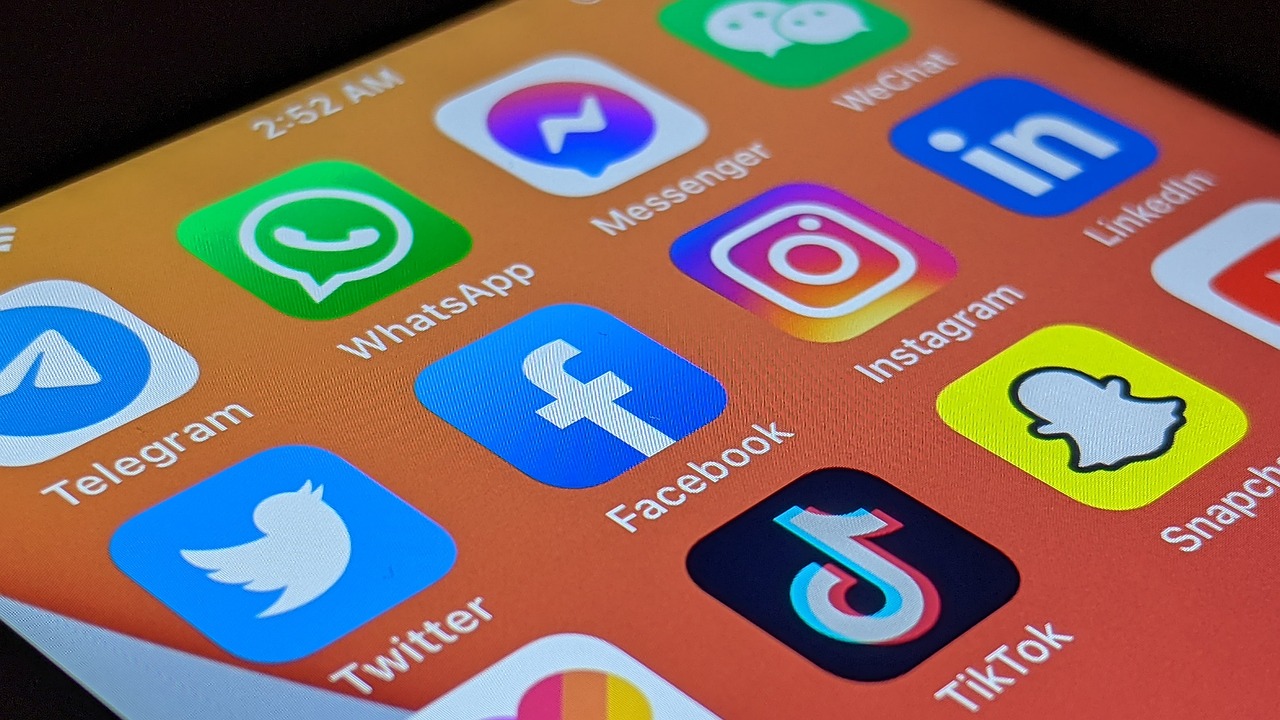
In our hyper-connected world, the convenience of sharing our whereabouts can sometimes overshadow the potential dangers lurking beneath the surface. When you post that you're at a trendy café or checking in at a concert, it might seem harmless, but this seemingly innocent act can expose you to significant risks. Think about it: when you share your location in real-time, you are effectively broadcasting your current position to everyone, including those who may have less-than-noble intentions.
Criminals can take advantage of location sharing in various ways. For instance, if they know you're not home because you’ve posted about your vacation, they might seize that opportunity to break into your house. It's like leaving your front door wide open and then walking away, thinking everything will be fine. To illustrate this, consider the following:
| Location Sharing Risks | Potential Consequences |
|---|---|
| Real-time check-ins | Increased risk of burglary or stalking |
| Geotagged photos | Identification of home address or frequent locations |
| Public location posts | Unwanted attention from strangers |
Moreover, the dangers of location sharing extend beyond physical safety. It can also lead to a loss of privacy that many people underestimate. For instance, geotagging your photos can inadvertently provide a detailed map of your daily life, revealing your habits, routines, and even your social circles. Imagine someone piecing together your life story just by looking at your social media posts. It’s unsettling, right?
So, what can you do to protect yourself? Here are some practical tips:
- Disable location services on your social media apps when not in use.
- Post after the fact rather than in real-time. Share your experiences once you're safely back home.
- Review your privacy settings regularly to ensure that only trusted friends can see your location.
By taking these precautions, you can enjoy the benefits of social media while minimizing the risks associated with location sharing. Remember, the digital world is a double-edged sword; it can connect us but also expose us to dangers if we’re not careful. Always think before you share, and consider the potential implications of your posts.

In the age of social media, sharing personal milestones has become a common practice. Whether it's a new job, an engagement, or the birth of a child, many people feel compelled to broadcast these significant life events to their friends and followers. However, while it may seem harmless to share these joyous moments, doing so can lead to unintended consequences that can affect your privacy and emotional well-being.
One of the primary risks associated with posting personal milestones is the potential for unwanted attention. For example, announcing your engagement may attract congratulatory messages, but it can also lead to inquiries from individuals who may not have your best interests at heart. This could include unwanted advances or even harassment from strangers who feel entitled to engage with you based on your public announcements.
Moreover, sharing milestones can inadvertently expose you to privacy breaches. Think about it: when you post about your new job, you're not just sharing your happiness; you're also revealing the name of your employer, your position, and possibly even your salary if you're not careful. This information can be exploited by malicious individuals looking to impersonate you or to gain access to sensitive company data. In today's digital world, where identity theft is rampant, this kind of oversharing can have serious repercussions.
Additionally, the emotional impact of sharing personal milestones should not be underestimated. The pressure to portray a perfect life online can lead to feelings of inadequacy, especially when friends and family respond with envy or comparison. When people see your happy moments, they might not realize the struggles you faced to get there, leading to a distorted perception of reality. This can create a cycle of anxiety and stress, as you feel compelled to maintain that idealized image.
To mitigate these risks, it's crucial to think carefully before posting about your personal milestones. Consider the following:
- Limit Your Audience: Adjust your privacy settings to ensure that only trusted friends and family can see your posts.
- Think Before You Share: Ask yourself if the information you're about to share is something you would be comfortable with strangers knowing.
- Delay Your Posts: Consider waiting a few days before sharing significant news. This can help you assess the situation more clearly and protect your privacy.
In conclusion, while sharing personal milestones can be a way to celebrate and connect with others, it’s essential to be aware of the potential dangers. The digital landscape is fraught with risks, and protecting your privacy should always take precedence. Remember, not every moment needs to be shared online; sometimes, the best memories are the ones that we keep close to our hearts.
Q: What are some common personal milestones people share on social media?
A: Common milestones include engagements, weddings, births, new jobs, graduations, and significant anniversaries.
Q: How can I protect my privacy while sharing milestones?
A: You can protect your privacy by adjusting your privacy settings, limiting your audience, and being mindful of the information you share.
Q: What should I avoid posting on social media?
A: Avoid sharing sensitive information, such as your exact location, financial details, or anything that could be used for identity theft.
Q: Can oversharing affect my mental health?
A: Yes, oversharing can lead to feelings of anxiety and inadequacy, especially in a culture that promotes comparison.
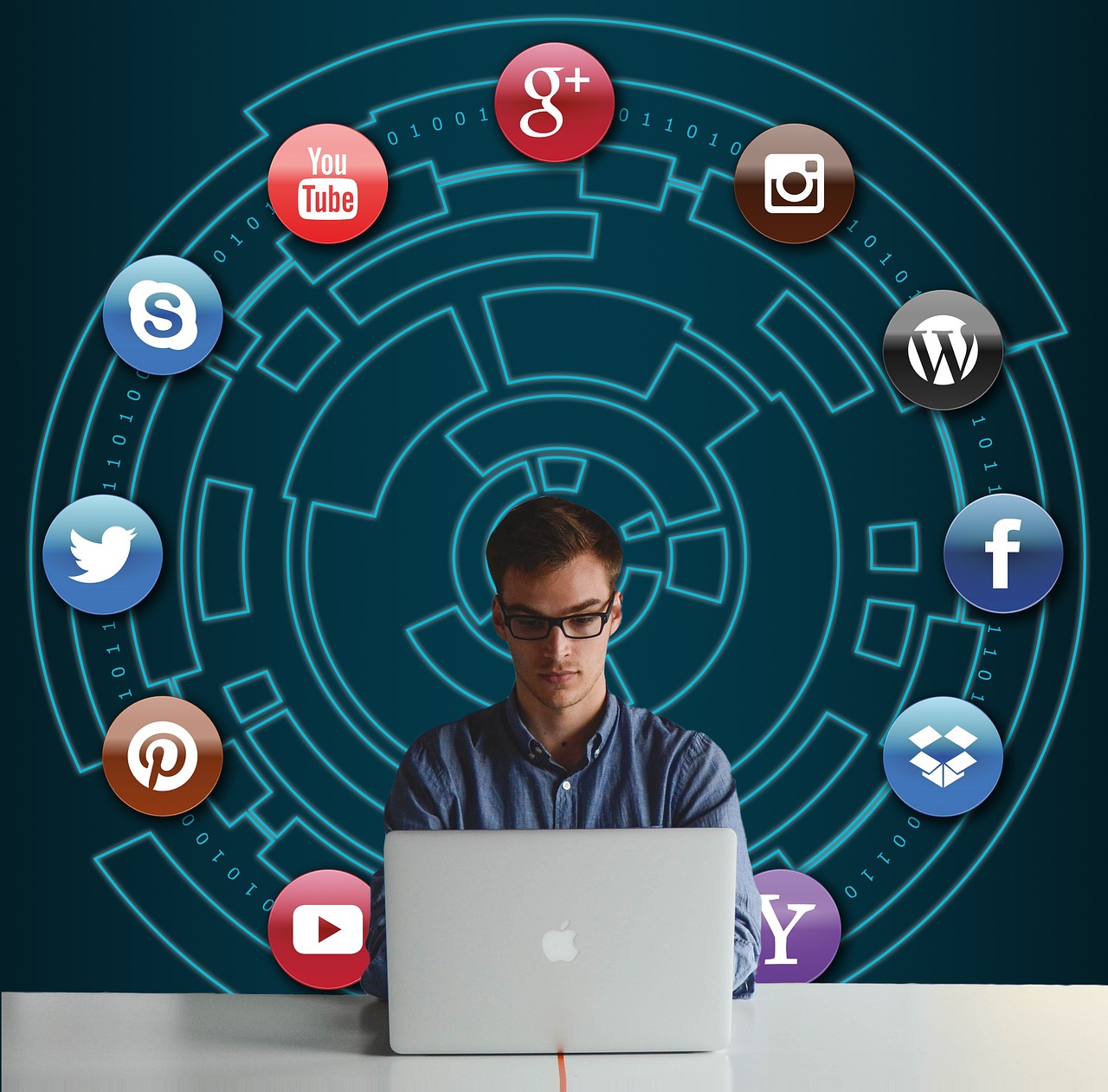
In today’s digital age, the line between personal and professional lives is increasingly blurred, especially on social media. What may seem like a harmless post about your weekend getaway or a casual comment on a trending topic can have serious implications for your career. Employers often conduct online searches to gauge potential employees' personalities and professionalism, and what they find can significantly impact hiring decisions. Imagine applying for your dream job only to discover that a potential employer stumbled upon a post where you vented about your frustrations at work or shared an unflattering photo from a party. The reality is that oversharing can lead to negative perceptions, and in some cases, it can even cost you the job.
Moreover, the repercussions of oversharing don’t just stop at hiring. Current employees may find that their social media presence affects their relationships with colleagues and supervisors. For instance, sharing too much personal information can create discomfort in the workplace. Colleagues may feel they know too much about you, which can lead to awkward interactions or even gossip. This can create a challenging work environment, where your professional reputation is at stake. It's essential to maintain a level of professionalism online that aligns with your workplace culture.
To illustrate the potential pitfalls, consider the following table that outlines common oversharing scenarios and their possible professional consequences:
| Oversharing Scenario | Possible Consequences |
|---|---|
| Posting negative comments about a current or former employer | Damage to your professional reputation; potential job loss |
| Sharing personal conflicts or drama | Colleagues may view you as unprofessional or emotionally unstable |
| Geotagging your location during work hours | Possible disciplinary action for not being present at work |
| Discussing salary or benefits publicly | Creating tension among coworkers; potential HR issues |
In short, the impact of oversharing on your professional life can be profound and far-reaching. It’s crucial to think before you post. Ask yourself: “Would I be comfortable if my boss or a potential employer saw this?” By setting boundaries and being mindful of what you share, you can protect your professional image while still engaging with your social media network. Remember, once something is online, it’s challenging to take it back. So, keep your personal life personal and your professional life professional, and you’ll navigate the complexities of social media far more effectively.
- What is oversharing on social media? Oversharing refers to sharing excessive personal information that may lead to privacy risks or negative perceptions.
- How can oversharing affect my job search? Employers often check social media profiles, and inappropriate posts can lead to unfavorable judgments about your character.
- What steps can I take to protect my privacy on social media? Adjust your privacy settings, be selective about what you share, and consider the potential impact of your posts on your professional life.

This article explores the risks associated with sharing personal information on social media platforms, including privacy concerns, identity theft, and the potential impact on personal and professional relationships.
Despite the desire for privacy, many users willingly share personal information online. This section examines the contradiction between the need for privacy and the tendency to overshare on social media.
Revealing personal information can lead to identity theft, a serious crime that affects millions. This section discusses how oversharing can make individuals vulnerable to fraud and the steps to mitigate these risks.
Certain behaviors, such as posting location updates and personal milestones, can expose users to danger. This subsection identifies common oversharing habits and their potential consequences.
Sharing real-time location information can alert criminals to your whereabouts. This part elaborates on the risks associated with geotagging and location check-ins.
Posting about significant life events can attract unwanted attention. This section explores how sharing milestones can lead to privacy breaches and emotional distress.
Personal information shared online can have repercussions in the workplace. This subsection discusses how oversharing can affect job prospects and professional relationships.
The digital world is a double-edged sword, providing both connection and isolation. The pressure to maintain a certain image on social media can lead to anxiety and depression. Many users feel compelled to present a curated version of their lives, often leading to a disconnect between their online persona and real-life experiences. This dissonance can create feelings of inadequacy and self-doubt. Have you ever scrolled through your feed and felt that nagging voice in your head whispering that you don't measure up? You're not alone.
Moreover, the constant comparison to others can exacerbate mental health issues. Social media platforms often foster a culture of competition, where users feel the need to showcase their best moments, leading to an unrealistic portrayal of life. This can create a toxic environment where individuals feel pressured to chase likes and validation, often at the cost of their mental well-being. The irony is that while social media is supposed to connect us, it can also deepen feelings of loneliness and depression.
Here are some common mental health consequences associated with oversharing on social media:
- Anxiety: The fear of missing out (FOMO) and the constant need for approval can lead to heightened anxiety levels.
- Depression: Seeing others' highlight reels can trigger feelings of sadness and hopelessness.
- Low Self-Esteem: Regularly comparing oneself to others can diminish self-worth and confidence.
It's crucial to recognize the impact of social media on our mental health. Establishing boundaries and taking breaks from social media can significantly improve one's emotional state. Remember, it's okay to disconnect and prioritize your mental well-being over likes and shares. After all, your worth is not defined by your online presence.
Social media often fosters a culture of comparison, leading to feelings of inadequacy. This part discusses how oversharing can contribute to negative self-image and mental health issues.
Establishing boundaries and understanding privacy settings is crucial for protecting personal information. This section offers practical tips for managing privacy on social media platforms.
Q1: How can I protect my personal information on social media?
A1: Use strong privacy settings, limit the information you share, and be cautious about friend requests from unknown individuals.
Q2: What are the signs that I might be oversharing?
A2: If you find yourself posting personal details frequently or feeling anxious about your online presence, it might be time to reassess your sharing habits.
Q3: Can taking a break from social media improve my mental health?
A3: Yes! Many people report feeling more relaxed and less anxious after taking a break from social media.
Q4: Is it safe to share my location on social media?
A4: It's risky. Sharing your location can make you vulnerable to unwanted attention or even crime. Always think twice before posting location updates.
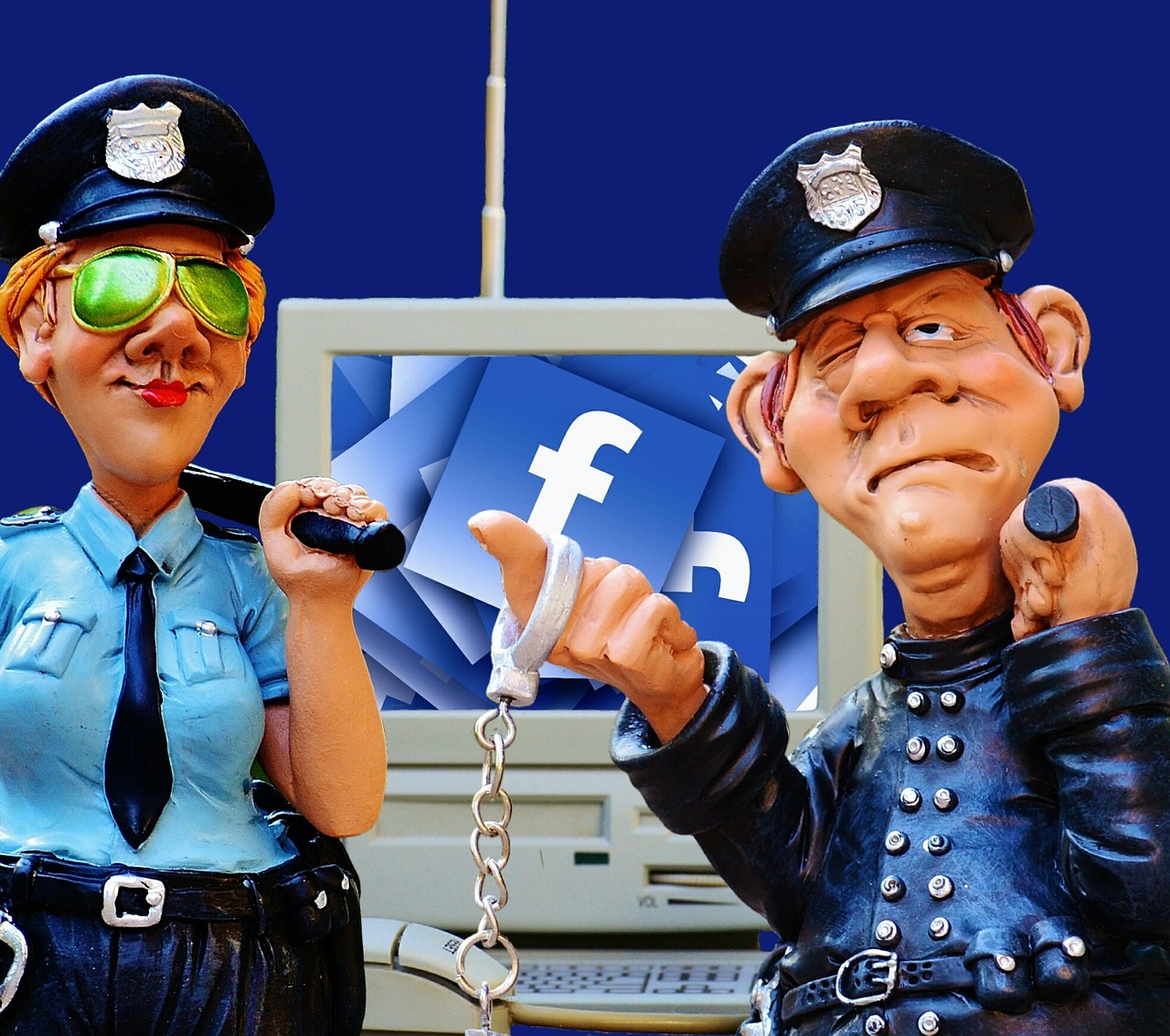
In today's digital age, social media platforms have transformed into virtual stages where users curate their lives for an audience. This phenomenon, often referred to as comparison culture, creates an environment where individuals feel compelled to showcase their best selves. But what's the cost of this constant comparison? It can lead to feelings of inadequacy and low self-esteem. Think about it: when you scroll through your feed, what do you typically see? Perfect vacations, flawless bodies, and seemingly perfect relationships. These images can distort reality, making your own life feel mundane in comparison.
When we see our friends or influencers living their "best lives," it's easy to fall into the trap of comparing our everyday struggles to their highlight reels. This can trigger a vicious cycle of self-doubt and anxiety. You might find yourself asking, "Why don't I have that kind of life?" or "What am I doing wrong?" These questions can be harmful, leading to a negative self-image and even mental health issues like depression.
Moreover, the pressure to maintain an idealized image can cause individuals to overshare personal milestones or achievements, further perpetuating the cycle of comparison. For instance, someone might post about a recent promotion at work, only for others to feel envious or inadequate about their own careers. This can create an environment where people feel they must constantly one-up each other, leading to heightened stress and anxiety.
It's crucial to recognize that social media is often a curated experience, not a reality. Many users edit their photos, choose flattering angles, and highlight only the positive aspects of their lives. In fact, a study found that 70% of social media users admit to editing their images before posting. This means that what you see online is often a manipulated version of reality, which can skew your perception of your own life.
So, how can we combat this comparison culture? Here are a few strategies:
- Limit Social Media Use: Consider taking breaks from social media to focus on your own life without the constant barrage of comparisons.
- Curate Your Feed: Follow accounts that promote positivity and authenticity rather than those that induce feelings of envy.
- Practice Gratitude: Regularly remind yourself of your own accomplishments and the positive aspects of your life.
In conclusion, while social media can be a great way to connect with others, it's essential to be mindful of the impact it can have on our mental well-being. By recognizing the dangers of comparison culture, we can take steps to protect our mental health and foster a more positive online experience.
- What is comparison culture? Comparison culture refers to the tendency of individuals to compare their lives, achievements, and appearances to those of others, often as showcased on social media platforms.
- How does comparison culture affect mental health? It can lead to feelings of inadequacy, low self-esteem, anxiety, and depression, as individuals may feel pressured to meet unrealistic standards set by others.
- How can I reduce the impact of comparison culture? You can limit your social media use, curate your feed to follow positive accounts, and practice gratitude to focus on your own life and achievements.
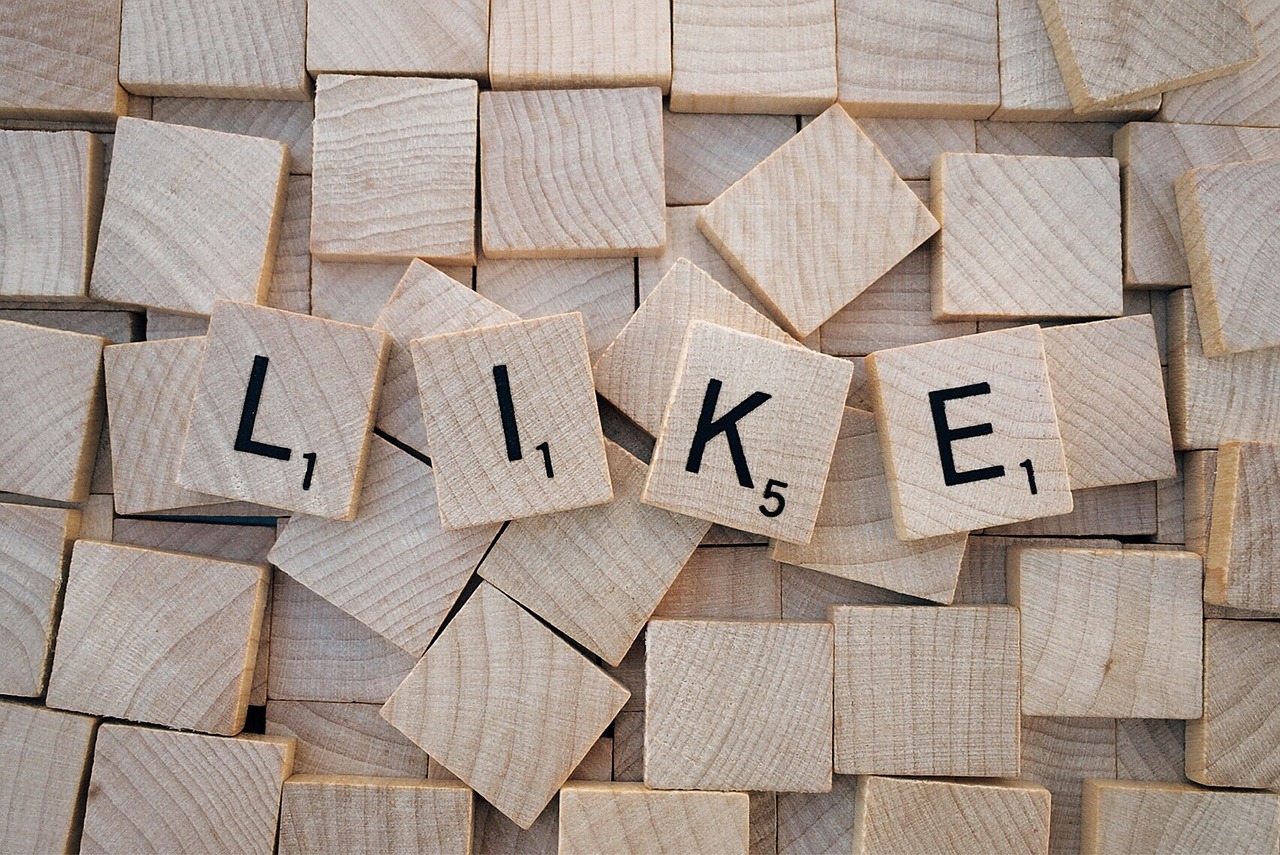
In today's digital age, where every click and scroll can be seen by the world, establishing boundaries on social media is crucial. It’s like building a fence around your yard; you want to keep the good stuff in and the unwanted guests out. But how do we effectively create these boundaries? First, it’s essential to understand the privacy settings available on various platforms. Each social media site offers different tools to help you control who sees your information. For example, Facebook allows you to customize your audience for each post, while Instagram lets you set your account to private. Understanding these features can be your first line of defense against oversharing.
Moreover, it’s not just about adjusting settings; it’s about mindfulness. Before hitting that 'post' button, ask yourself: “Is this something I want everyone to know?” If the answer is no, reconsider sharing it. This simple question can save you from potential embarrassment or worse, safety risks. Additionally, consider the long-term implications of your posts. What seems harmless today might come back to haunt you tomorrow. Think of social media as a permanent marker; once you write it down, it’s hard to erase.
Another effective strategy is to limit the amount of personal information you share online. For instance, instead of sharing your full birth date, consider just sharing the month and day. This small change can significantly reduce your vulnerability to identity theft. Additionally, avoid sharing sensitive information such as your phone number or home address. If you must share such details, do so through private messages rather than public posts. Remember, the more information you put out there, the easier it is for someone to misuse it.
Let’s also talk about friend lists and followers. Take the time to regularly review who you’re connected with online. Are these people genuinely part of your life, or are they just acquaintances? Consider curating your friend list to ensure that your posts are only visible to those you trust. Most platforms allow you to create custom lists, so you can share specific content with specific groups. This way, you can maintain a level of privacy while still engaging with your community.
Lastly, be aware of the platform policies regarding privacy. Familiarize yourself with the terms of service for each social media platform you use. These documents often outline how your data is collected, used, and shared. Understanding these policies can empower you to make informed choices about what you share. If a platform doesn’t respect your privacy, it might be time to reconsider your presence there.
In conclusion, establishing boundaries and understanding privacy settings on social media is not just a recommendation; it’s a necessity. By being proactive and mindful about what you share, you can protect yourself from the dangers of oversharing. Remember, in the world of social media, your personal information is like currency—handle it wisely.
- What are the best privacy settings for social media? - Each platform has unique settings. Generally, set your profile to private, limit who can see your posts, and review your friend list regularly.
- How can I prevent identity theft on social media? - Avoid sharing sensitive information, use two-factor authentication, and be cautious about friend requests from unknown individuals.
- Should I share my location on social media? - It's best to avoid real-time location sharing as it can alert potential criminals to your whereabouts.
- How do I know if I’m oversharing? - If you feel uncomfortable about a post being seen by everyone, it’s likely you’re oversharing. Always consider the audience before posting.
Frequently Asked Questions
- What are the main risks of sharing personal information on social media?
Sharing personal information on social media can expose you to various risks, including identity theft, privacy breaches, and even harassment. When you overshare, you give potential criminals the information they need to impersonate you or access your accounts.
- How can I protect my privacy on social media?
To protect your privacy, start by reviewing your privacy settings on each platform. Limit who can see your posts, and consider making your profile private. Additionally, think twice before sharing sensitive information like your location or personal milestones.
- What are common oversharing behaviors to avoid?
Common oversharing behaviors include posting real-time location updates, sharing personal milestones (like engagements or job changes), and discussing financial information. These actions can attract unwanted attention or even put you in danger.
- Can oversharing affect my professional life?
Absolutely! Oversharing on social media can have serious repercussions for your professional life. Employers often check candidates' social media profiles, and inappropriate posts could harm your job prospects or damage your professional relationships.
- What is the "comparison culture" on social media?
The "comparison culture" refers to the tendency of users to compare their lives to the curated and often unrealistic portrayals of others on social media. This can lead to feelings of inadequacy, anxiety, and depression, especially when individuals overshare about their achievements.
- How can I establish boundaries for my social media use?
Establishing boundaries involves deciding what personal information you are comfortable sharing and sticking to those limits. Regularly review your posts, and ask yourself if the information is something you would want everyone to know. If not, keep it private!

